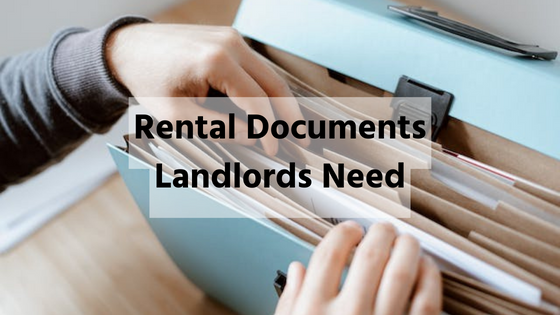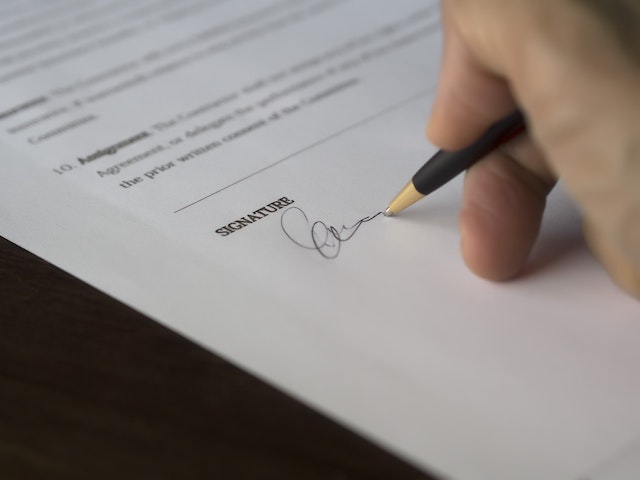Rental Documents Landlords Need

Landlords have a lot of duties, such as maintaining the property and screening tenants. Accompanying these responsibilities is a significant volume of documentation. Keeping all of your paperwork in order, whether it’s lease agreements, vendor bills, security deposits, or rental applications, has several benefits.
One benefit is that it protects your interests in any future legal conflicts by guaranteeing adherence to local landlord-tenant laws. It also makes the process of filing taxes easier. Maintaining thorough documentation also promotes transparency with tenants and helps keep in compliance with privacy regulations.
If you’re a landlord and unsure about which records to retain, IPM Property Management can provide you with the necessary advice. We will go over the key records that landlords need to keep up to date in this post in order to manage their properties effectively.
Applications
A rental application form must be filled out by each potential tenant, providing necessary information such as contact information, job status, and rental history. You should also request permission for credit and background checks during this time. The screening procedure and this data can help determine an applicant’s suitability.
All application materials, including those from rejected applicants, should be stored securely. In the event that an applicant contests your decision, these records provide proof of compliance with fair housing regulations.
Screening
It is necessary to thoroughly examine prospective tenants after evaluating their initial application. This is a lengthy process that includes credit checks, employment status verification, rental history analysis, and background checks.

To make sure that potential tenants are suitable, it is crucial to get in touch with references and interview candidates. All pertinent data must be safely stored both during and after the screening procedure.
This covers the information gathered from the initial screening as well as any follow-up pet screenings and renewal screenings that may be carried out. Keeping thorough records is necessary for compliance and can be a crucial source of evidence in the event that decisions on tenant selection are contested or disputed.
Agreements
A legally binding contract that contains important information on the terms of the lease, the cost of the rental, and the tenant’s maintenance requirements of the property is called a lease or rental agreement. It is not a good idea to rent out a property without a lease because this exposes landlords to dangers including uninvited tenants, property damage, and even evictions.
That’s why, before giving tenants the keys to the rental, it is essential to make sure they understand the terms of the lease. A signed copy of the lease must be kept on file for reference during the tenancy in case there are any disagreements or miscommunications.

We advise retaining the lease even after the tenant leaves the home, as it protects owners’ assets by acting as crucial paperwork in any future legal disputes with previous tenants.
Policy
The benefits of allowing pets to stay in your property are numerous. Ultimately, tenants are willing to pay more for comfortable pet amenities. However, owning a pet comes with significant responsibilities. Thankfully, you can protect your investment by ensuring that every lease you sign includes a thorough pet policy.
It’s important that tenants pay any cleaning or pet-related expenses and are aware of their responsibilities for their dogs. If there is ever an issue with a pet, having a copy of our pet policy on file will protect the landlord.
Inspection
You need to document the property inspection with as many pictures and videos as you can, along with notes. Store them collectively in a file. Comparing these records can determine whether a tenant has caused damage beyond typical wear and tear. This will also protect your interests in the event that there is a disagreement over the security deposit.
It’s a great idea to begin a tenancy with a walk-through inspection with your new tenants. This will facilitate communication between you and your tenants as well as help you identify any potential problems and assess the property’s present state.

Throughout the lease, it is imperative that you conduct regular property inspections to make sure that the tenants are taking good care of the property and that there are no issues that need to be rectified right immediately. Similar to this, once the tenants have left the property, you must conduct a move-out inspection.
Maintenance & Repairs
Regular maintenance is the key to keeping your rental property in good condition and your tenants happy. Keeping up with maintenance will help you stay legal, as landlords are required to keep their buildings safe and habitable at all times.
If the property is not adequately maintained, tenants may be able to break the lease early or sue their landlord. This is why, in order to maintain the condition of your property, you must maintain detailed records of everything you do. Included should be bills from vendors and contractors, as well as any additional money you spend on upkeep.
Landlords should also maintain records of documentation related to requests for repairs or maintenance made by tenants. Even if they make the request via text or phone, you still need to record the issue and the way and when it was resolved.
Complaints
Throughout a tenancy, you will deal with a fair variety of tenant complaints, from maintenance problems to noise complaints. Taking care of them as quickly as feasible will improve your relationship with your tenants.

All complaints from tenants must be kept in detail in your records. Keep a record of all the correspondence related to the situation, whether it be a series of texts, an email conversation, or dated notes from a phone call. Along with documenting any follow-ups, you should also note how and when the problem was remedied.
Bottom Line
Among the paperwork landlords have to keep are maintenance requests, rental applications, and complaints from tenants. You’ll do your task faster if you organize this documentation.
Do you need help with the paperwork related to your rental? Our staff is available to assist with administrative tasks like document monitoring, simplicity of repair requests, and lease drafting. Speak with IPM Property Management right now!
